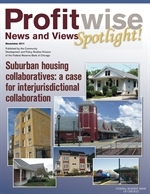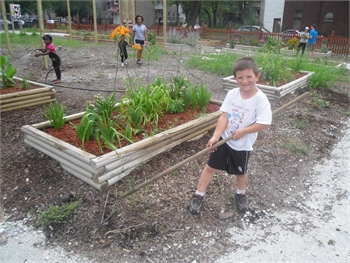
Thursday is Thanksgiving. And whether that means family, food, football, or Black Friday, it is an occasion to reflect and, hopefully, be grateful.
Where We Stand
In the spirit of the holiday, we thought we would share some of the reasons MPC is especially thankful this year.
- The Chicago Dept. of Transportation and Chicago Transit Authority are actively exploring gold-standard Bus Rapid Transit, to improve transit access for the region’s commuters and create economic opportunities in neighborhoods across the city.
- Seven regional employers – including W.W. Grainger, Loyola University and Underwriters Laboratories – have signed on to the Commute Options pilot, to offer their employees incentives to get out of their cars and into a better ride to work.
- This spring, the Illinois General Assembly enacted legislation to allow Public-Private Partnerships to be used to fund transportation infrastructure investment in Illinois.
- And, as described in the Project Progess Report below, the multi-town collaborations we are nurturing in South and West Cook counties have been awarded more than $22 million to develop and implement coordinated solutions to their massive foreclosure crises.
MPC also deeply appreciates the many contributors to these successes, particularly our Board of Governors, Resource Board, Committee members, and Executive Advisors – as well as our many partners, including the Chicago Metropolitan Agency for Planning and Metropolitan Mayors Caucus. Your counsel, energy and generosity are tremendous. Thank you!
Project Progress Report: Interjurisdictional Collaboration

More than 100 community leaders, policy advocates and decision-makers gathered at the Federal Reserve Bank of Chicago on Monday, Nov. 7, 2011, to hear about successes, identify challenges, and discuss next steps for interjurisdictional collaboration.
Also known as multi-town collaboration, this burgeoning model is supporting high-impact housing and economic development in Chicagoland. At the Nov. 7 event, the Fed released a special edition of ProfitWise News and Views, which highlights the ongoing stories of four suburban housing collaboratives that are realizing the benefits of collaboration around foreclosure prevention and response strategies, transit-oriented redevelopment, rental preservation, and planning for future housing needs.
In partnership with the Metropolitan Mayors Caucus, Chicago Metropolitan Agency for Planning (CMAP), and a host of other partners, MPC has supported these four clusters for nearly two years – and celebrated their successes. The most recent was announced just this week: The West Cook County Housing Collaborative received a $2.9 million Sustainable Communities Initiative Challenge Grant from the U.S. Dept. of Housing and Urban Development. In 2010, the South Suburban Mayors and Managers Association received the region’s first such award, for its work on the South Suburban Housing Collaborative.
Despite the clear benefits of working together, communities are encountering challenges along the way, including long-standing government protocols that favor competition over cooperation. MPC, Metropolitan Mayors Caucus, and CMAP noted some of these barriers in a foreword co-authored to accompany the Fed's report. All three organizations have pledged to continue to advance needed policy, regulatory and finance reforms to make interjurisdictional collaboration easier, more effective, and replicable.
Read the foreword to the Fed’s report.
Read a recap of the Nov. 7 convening at the Federal Reserve Bank.
Support MPC's work to assist communities collaborating toward a stronger region.
Principles of Placemaking

Prior to the summer of 2010, the empty lot on the southeast corner of Avers Avenue and Cermak Road in Chicago’s North Lawndale neighborhood was strewn with broken bottles and overrun with grass and weeds, and had become a haven for loiterers and drug dealers. Faced with such an eyesore, some might simply look away. But several residents of the block decided they had had enough and channeled their frustration into action: Karen Trout and Laura Michel, friends and residents of Avers Avenue, scoped nearby community gardens for inspiration, and after consulting with residents, their children, and the neighborhood children, decided that transforming the space into a community garden and meeting space would be the most beautiful, useful, and cost-efficient way to turn the lot around.
Read more about the transformation of Avers Community Garden in this month’s Placemaking case study
Headlines
Community Development
- Gary, Ind.'s, new mayor-elect a galvanizing moment for revitalization
- Senn Park Unity Garden finishes strong
- Great design meets innovative problem-solving
Housing
- Northwest Suburban Housing Collaborative hires housing coordinator
- Employer-assisted housing: 'The most gratifying of all programs I’ve been involved with'
- Bipartisan Housing Policy Commission launching Oct. 26 in D.C.
- Employers can help employees purchase, rent new homes created by NSP Chicago
Infrastructure
- All Systems Go: Engineering Sustainable Utility Solutions
- Pace, IDOT, RTA begin Bus on Shoulder pilot project
- Senate releases MAP-21 transportation bill proposal
- CTA Red Line getting $1 billion face lift
- Proposed pre-tax transit benefit changes for 2012
- We’ve run out of money. It’s time to start thinking
Upcoming events
| Dec 1 | Better Commutes, Less Congestion: Employers Unlock the Region's Gridlock 12:00 PM–1:30 PM |
|---|---|
| Dec 7 | Improving Health Through Planning 8:30 AM–1:00 PM |
MPC in the News
Kane County looks at Randall rapid transit; bus lane could offer choices
Elgin Courier-News, 10/29/2011
Chicago announces Placemaking app winner
Place Matters radio show, 10/27/2011
Chicago's 'Congestion Fee' Gets Chilly Reception
National Public Radio, 10/22/2011
‘Mi Parque’ Wins Metro Chicago Illinois Contest
Lawndale News, 10/21/2011
Taxes on meters also needed, experts say
Chicago Tribune, 10/15/2011
News of Interest
Illinois leads payroll increases in 39 states
Daily Herald's Business Ledger, 11/22/2011
Top 10 Urban Planning Books 2012
Planetizen, 11/21/2011
Motorists face 'avalanche' of higher tolls
Stateline.com, 11/21/2011
What Do You Do With 3,000 Empty Buildings? Redevelopment In Northwest Indiana
Changing Gears, a special series of NPR, 11/11/2011
Become a fan of MPC on Facebook
Follow MPC on Twitter
Re-Connection is MPC's monthly e-newsletter. Tell us what you think. Email reconnection@metroplanning.org with feedback in the subject.
To subscribe, visit our website at metroplanning.org/signup.html.
Email design by Webitects
Metropolitan Planning Council | 140 S Dearborn St | Suite 1400 | Chicago, IL 60603Phone (312) 922-5616 phone | (312) 922-5619 fax | reconnection@metroplanning.org
Copyright © 2025 Metropolitan Planning Council. All rights reserved.
To stop receiving this newsletter visit metroplanning.org/unsubscribe.html?EmailMsgId=150&email=

